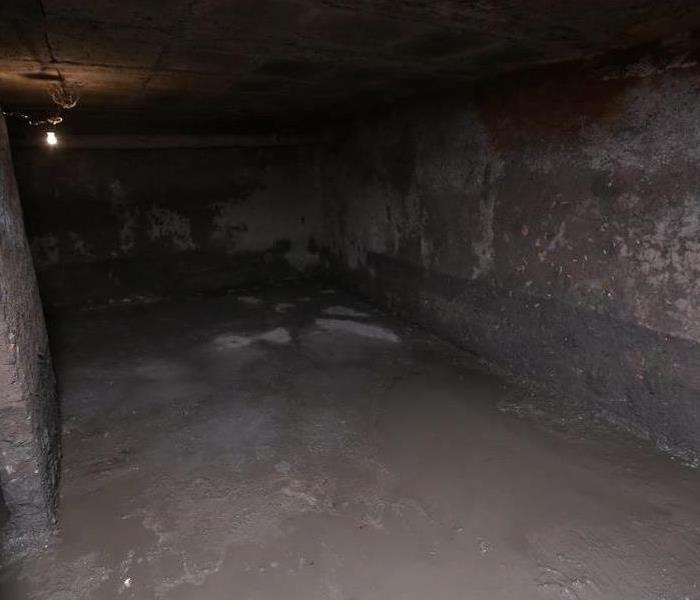Causes of a flooded basement
3/9/2023 (Permalink)
A flooded basement can be a nightmare. In addition to being messy and smelly, it can cause serious damage to your home. If you suspect that you have a flooded basement, call a professional at SERVPRO of North Naples who can help assess the problem and repair it.
Low water pressure
One of the most common causes of a flooded basement is low water pressure. Your home's plumbing system has to be able to supply enough water at the right pressure for all of your plumbing fixtures and appliances to function properly. If you have low water pressure, you may notice that:
- Toilets back up more often than usual because there isn't enough pressure in the pipes to push waste through them easily
- Showerheads spray water in all directions instead of just shooting straight out (this can be especially annoying when it happens while you're trying to get ready for work in the morning!)
- Your dishwasher leaks onto your kitchen floor because it doesn't have enough power behind its sprayer arm
Leaking water pipes
Leaking water pipes are the most common cause of flooded basements. Water damage can be expensive to repair, so it's important to check for leaks regularly and fix them as soon as you find them. If you notice that your basement is constantly wet or feels damp, it may be time to call in an expert.
Check all of your faucets and plumbing fixtures (such as toilets) for drips that could lead to a leaky pipe somewhere else in your home. You should also look at any exposed pipes near windows or doors where there might be temperature fluctuations that could cause condensation on the outside of these pipes over time
Overflowing toilet or dishwasher
There are some things that you can do to stop a flooded basement, but they're not necessarily easy and they're not always effective.
If your toilet or dishwasher is overflowing, then there's nothing you can do except call a professional plumber. These appliances don't have valves like sink faucets do; if the water fills up past its limit, it just keeps coming until it's drained out again by gravity or someone turns off the spigot supplying water from above ground level. You'll probably see signs of an overflowing toilet or dishwasher before this happens. A rising level in your basement floor near where those appliances are located is one sign but if they haven't been fixed yet and start leaking all at once (or worse yet start flooding), then you need emergency help right away!
Frozen pipe
If you live in an area that experiences cold weather, you may be familiar with the risk of frozen pipes. When water freezes inside a pipe, it expands and can cause the pipe to burst. This can result in a flooded basement or even worse--a flood throughout your home!
To prevent this from happening keep all faucets open when temperatures dip below freezing outside (this should be done regardless). If any pipes freeze anyway, immediately turn off your main water supply valve at the top of each faucet; then use an ice pick or screwdriver to chip away at any ice buildup until it's gone.
Broken sump pump
A sump pump is an important part of your basement drainage system. It should be checked regularly to make sure it's working properly and efficiently.
If you notice a problem with your sump pump, contact a professional immediately. Clogs around the pump or other issues can cause it to fail, leaving you with a flooded basement. If you do need to replace your sump pump, remember that they are available at hardware stores.
If you suspect that your basement is flooded, it's important to call a professional. A skilled technician will be able to assess the situation and determine whether or not there is any damage to your basement. They can also help you prevent future flooding and make sure that your home is safe from mold growth. If necessary, they'll help with insurance claims and other legal matters related to the flood.






 24/7 Emergency Service
24/7 Emergency Service
